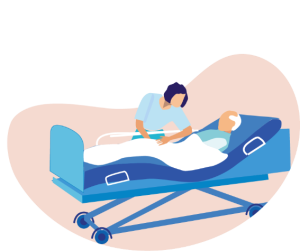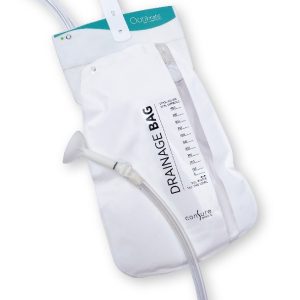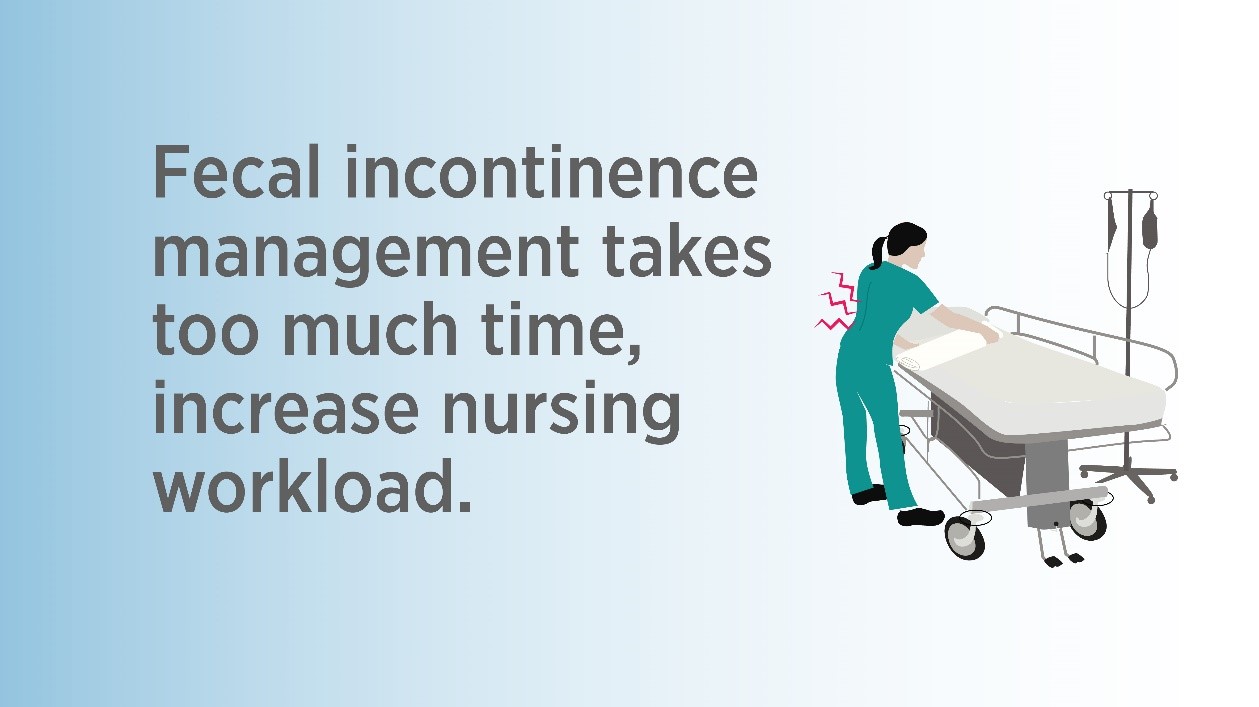ICU nurses carry out many critical tasks throughout the course of a shift. In fact, a recent study shows that nurses typically perform about 125 activities each hour, and switch tasks approximately every 29 seconds. In the ICU, many nursing procedures are life-saving in nature. Other nursing interventions are not as critical to saving a patient’s life, but are time consuming and essential for patient health.
Managing fecal incontinence is one such intervention. Critical illnesses and the medications used to treat ICU patients can often cause fecal incontinence. Left unaddressed, the presence of stool can have a detrimental effect on skin and on overall health. Prolonged stool exposure can cause incontinence-associated dermatitis, reduce skin integrity, and contribute to pressure ulcers. Open systems of fecal management can lead to cross contamination leading to risk of hospital-acquired infections (HAIs), which can be a serious and even life-threatening complication of ICU care.
Each of these complications requires time-consuming nursing intervention. Performing skin assessments and wound care, staging pressure ulcers, identifying risk factors, collaborating with wound care specialists, and keeping skin clean and dry are essential for the health of patients with skin problems associated with fecal incontinence .
Managing Fecal Incontinence in the ICU

Incontinence care takes up to 174 mins/day
To manage incontinence effectively, enhance patient discomfort and reduce potential complications associated with fecal incontinence, nurses monitor and assess bowel movements frequently. Care includes frequent repositioning to check for leaked stool, cleaning the patient, changing the absorbent pads, bedding and gown, and assessing the patient for complications associated with fecal incontinence.
High Pressure Intrarectal Balloon Catheters (IBCs) help nurses manage fecal incontinence in their patients, but these fecal management systems can be labor-intensive and time-consuming. In fact, managing a fecal management system (FMS) can take up to 60 minutes per patient per day.
Additionally fecal incontinence device such as balloon catheter can cause issues and complications that take up even more of the nursing staff’s time. These catheters rely on rigorous irrigation and milking for adequate fecal diversion acquiring considerable nursing time. Under-inflation and over-inflation of the retention balloon can create time-consuming tasks for the ICU nursing staff. Inadequate inflation of the retention balloon can allow stool to leak out of the patient’s rectum, or allow the expulsion of the tube. These events may require cleaning the patient, changing their bedding and gown, and reinsertion of the IBC. Also high prevalence of leakage can lead to cross contamination and increased susceptibility to clinical complications. Due to multiple complications nurses have to daily remove catheters for few hours known as daily holiday. This adds up to the nursing tasks and increases nurse burden
To reduce leakage balloon catheters are often overinflated. Over-inflation can damage the rectal mucosa, which is a layer of intestinal tissue that facilitates bowel movements. Damage to this tissue can cause temporary tone loss in the rectal muscles, also known as anal atony, which can contribute to fecal incontinence. Over inflating balloon can strain the muscles of anorectal junction causing mucosal injury, bleeding sphincter damage and anal erosion. Some of these complications can potentially increase hospital length of stay and hamper clinical outcomes.
Qoramatic Helps Save Time, Reduce Nurse Workload

Qoramatic Automated Stool Management Kit
Switching to a Qoramatic automated fecal management system can save up to 174 minutes of valuable nursing time. The soft receptacle exerts 0mmHg radial pressure on rectal mucosa and eliminates the risk of necrosis, mucosal impairment or rectal trauma. Qoramatic proactively diverts fecal effluents reducing incidences of leakage and hospital acquired complication. It requires no inflation, mitigating risk of over inflation and associated issues. The stool kit has intermittent suction and irrigation chamber, automating tasks such as manual irrigation, milking and maintenance. This automation can help eliminate manual nursing intervention associated with fecal incontinence management, allowing nurses to focus on other crucial healthcare tasks. The Qoramatic device utilizes intelligent light indicator for easy troubleshooting of device. To get a free demo of Qoramatic Automated Stool Management, drop an email to [email protected].


